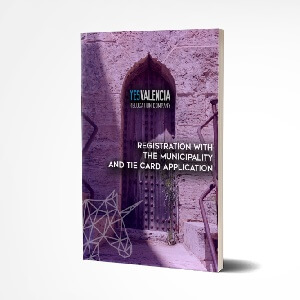 Living in Valencia probably does not incorporate Flamenco dancers, as many would envision, however the city comes with a fair share of other qualities.
Living in Valencia probably does not incorporate Flamenco dancers, as many would envision, however the city comes with a fair share of other qualities.
Valencia is a large, vibrant and economically strong city that has one of the major ports on the Mediterranean Sea. The economic spectrum of the city is varied and includes import and export, agriculture, education and research, textile and ceramic, financial services, and arts and tourism. This diverse economic basis on which the city pulsates makes it not just an enjoyable place for touring but also an excellent place to live. The city has an urban population of more than 1,000,000 people and has a well-established infrastructure to support this population. Manises International Airport is only 15 km from the city centre and has major European airline routes linking it to central cities around Europe. The public transport services around the city are quite efficient with an extensive metro train system, regional train service, tram, public bus routes and high-speed inter-city AVE train Madrid to Valencia.
Places to Visit and Things to See
 Valencia is a city full of amusing festivals that you will not experience anywhere else, specifically the well-known Las Fallas (Falles) local festival held in March. La Tomatina is an annual tomato fight that draws crowds to the nearby town of Buñol in August. Moreover, some more well-preserved traditional Catholic festivities happen throughout the year and the Holy Week celebrations in Valencia City are considered as one of the most colourful celebrations in Spain.
Valencia is a city full of amusing festivals that you will not experience anywhere else, specifically the well-known Las Fallas (Falles) local festival held in March. La Tomatina is an annual tomato fight that draws crowds to the nearby town of Buñol in August. Moreover, some more well-preserved traditional Catholic festivities happen throughout the year and the Holy Week celebrations in Valencia City are considered as one of the most colourful celebrations in Spain.
Living in Valencia provides you the excellent opportunity to take part in these wonderful, world-famous parties and make memories that you will never forget. Valencia’s city centre features some of the city’s most famous sights including the Turia River, Plaza de la Virgen, Torres de Serranos, the City of Arts and Sciences and Malvarrosa Beach. Considered as Mediterranean’s Cinderella City, it offers a unique mix of traditional and modern, old and new, and land and sea. The architectural buildings of Valencia are renowned with some of the finest examples including Gothic, Renaissance, Baroque and Romanesque architecture in Europe. Furthermore, national monuments, cathedrals, public buildings and museums are a broad selection of residential properties. Valencian neighbourhoods have an extensive range of properties, spanning the full spectrum of location, size and style.
The Valencian Community
Valencia is a cultured city with a powerful Mediterranean tradition proudly supporting a wonderful way of life. Valencians are very friendly and sociable and believe in living life to the fullest. They regularly celebrate various traditional festivals with street parties and activities for people belonging to all age groups. A strong feeling of community and family is present, which helps make the city a very safe place to live in. These aspects specifically appeal to individuals who want to assimilate into the Mediterranean lifestyle and culture instead of merely moving their culture to a sunny place.
The Cost of Living in Valencia
Although the expense of living is less than Barcelona and Madrid, some neighbourhoods popular within expats such as Avenida de Francia and Canovas remain expensive. Public transport in Valencia is comparatively cheaper with coaches (buses) offering an excellent, low-cost way of travelling around the city. Movies, sports, shopping and other recreational activities are not expensive either. Thus, Valencia is a relatively affordable city as compared to the other European cities.
Valencian Cuisine
Paella comes from Valencia, and if you haven’t tried it here, most probably you don’t know how really it should taste. So when living in Valencia be prepared to have one on Sundays, specially if you want to mingle in with locals. As a part of Mediterranean, the Valencian cuisine is recognized for the unrivalled freshness of the ingredients that go into its simple, appetizing and predominantly healthy dishes. Restaurants tend to be comparatively inexpensive and creative with their dishes, so make sure you try as many Valencian dishes, tapas and drinks as possible.
Climate in Valencia
The climate in Valencia is a subtropical Mediterranean one with long warm to hot summers and very mild winters. December, January, and February are considered as the coldest months with an average temperature of about 16,6 ºC (62.1 °F) during the day and 7,7ºC (45.9 °F) at night. The summer season starts from April and ends in November with regular temperatures above 25 ºC (75 °F).
If you choose to live in Valencia, you will make a choice for a great lifestyle whether you reside in a city apartment or a country villa. The city has everything that you could wish for along with a splendid view of the warm sun and beautiful blue sky. To get you started we even have prepared a detailed guide about how to purchase apartment in Valencia.




No responses yet